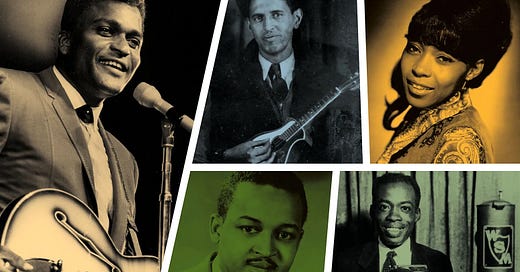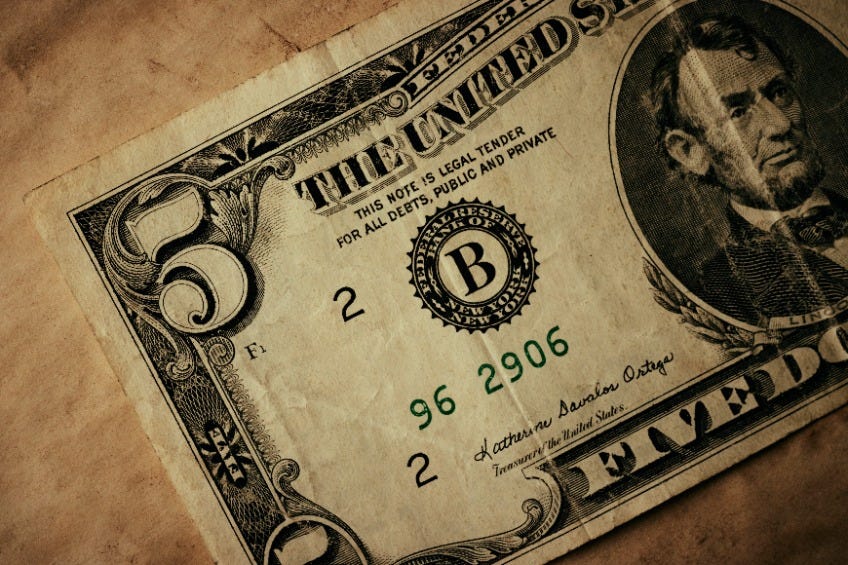The Choice: Blacks In Country Music
Black people are the foundation of all American music, including Country
Issue #521 The Choice Monday, March 4, 2024
During the 2024 Super Bowl, Beyoncé released two songs from her new country music album, “Texas Hold ‘Em” and “16 Carriages.” Even though several country music radio stations refused to play the songs until they were pressured to do so, “Texas Hold ‘Em” shot to the #1 spot on the Country Charts and more Spotify downloads than any other Beyoncé single or a song by any country artist ever.
Besides the fact that Beyoncé is from Houston, Texas, many people were surprised that she would release a country song and even more people were unaware that Black people have been a part of the country genre since the beginning.
As usual, Beyoncé did her homework and hired many contemporary Black country music artists, especially Black women country artists to be a part of her country album.
Country music is often associated with white artists, but the genre has a long and rich history of Black musicians who have made significant contributions. From its roots in the rural South to its popularity on the airwaves today, Black artists have been an important part of the country music scene, the first string bands in this country were enslaved people, and this music was appropriated to form Blackface minstrelsy, the United States’ first successful commercial music.
To be clear, what we call country today is more accurately an East Coast picking style of the blues.
Throughout the history of American commercial music, genre was always a construct of labels and radio to be able to divide and to market to different groups of people. It wasn’t until the mid-1960s that white acceptance of Black American music became more widespread.
In the early 20th century it was all American folk music, but they promoted this as hillbilly music, while the music that Black people were making was called race records.
Country music has always been home to African-American artists, and from its instrumentation to repertoire to vocal and instrumental techniques, country music is indebted to African and African-American traditions, but commercial decisions by white industry executives led to their exclusion from the genre for decades.
The Black influence on country music starts with the banjo, which often conjures the hazy image of a white pastoral South. But the instrument is a descendant of West African lutes, made from gourds, that were brought to America by slaves and became a central part of slave music and culture in the South.
Many of the songs that early hillbilly artists played were likewise inherited and adapted from Black sources — like slave spirituals, field songs, religious hymnals, or the works of professional black songwriters.
“When the World is On Fire,” a hymn arranged by a Black minister, was turned into the Carter Family’s 1928 hit “Little Darling, Pal of Mine” — which was then turned into Woody Guthrie’s quintessential “This Land is Your Land.” Meanwhile, “Carry Me Back to Old Virginny” was written by James A. Bland, a Black New Yorker who would hardly have found himself welcome in parts of Virginia had he still been alive in 1940, when it was named the official state song.
Country music grew from a need to appease a Southern audience that had idealized “The Great Cause” in the wake of the Civil War, and during the Great Migration, many Blacks left the banjo, country music and so many other African traditions in the South for a new life elsewhere.
One of the earliest pioneers of Black country music was Charley Pride, who broke barriers in the 1960s as one of the few successful Black artists in the genre. Despite facing discrimination and skepticism from some in the industry, Pride's talent and charisma helped him to become one of the best-selling country artists of all time.
In recent years, there has been a resurgence of Black artists in country music, with artists like Jimmie Allen, Mickey Guyton, and Kane Brown making waves in the industry. These artists have brought a fresh perspective to the genre.
Despite the progress that has been made, there are still challenges that Black artists face in the country music industry. Many Black artists have spoken out about the lack of representation and opportunities for them in the genre, calling for greater diversity and inclusion.
How the banjo and the origins of country music were so thoroughly eradicated of their blackness shows how cultural appropriation has always defined America.
Since before the United States was even a country, and continuing through today, Black people have had to fight to receive proper recognition and compensation for their talents and accomplishments, and it is important to recognize and celebrate the contributions of Black musicians in country music, past and present. Their voices and stories are an essential part of the country music tapestry, adding depth and richness to the genre.
The “Comments” feature is enabled for paid subscribers for “The Choice” posts. You can also discuss these facts in our community on Substack Notes. You can also read other Substack publications without subscribing to them when you join Notes.
These posts are free to read. To have 365 24/7 access to all our posts and podcast episodes and financially support “We Are Speaking” for no more than $5 per month, please subscribe at the paid level. You’ll receive a 7-day free trial!





